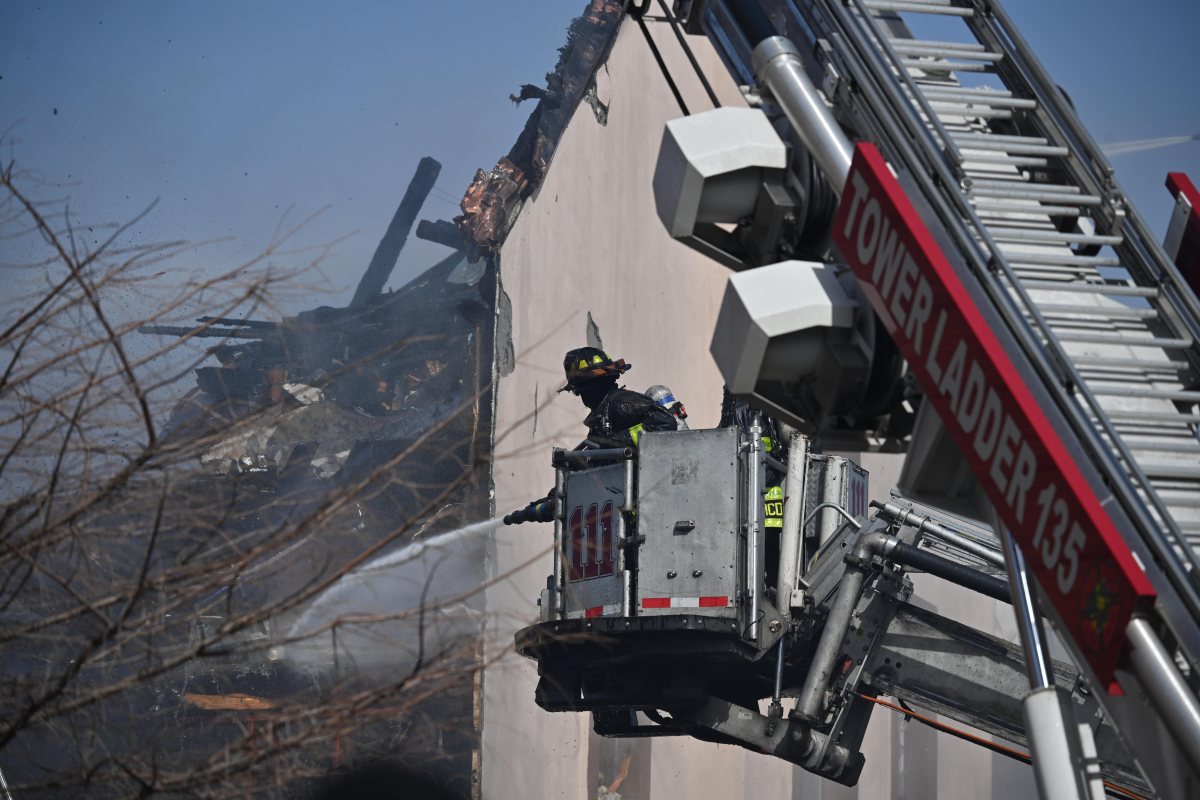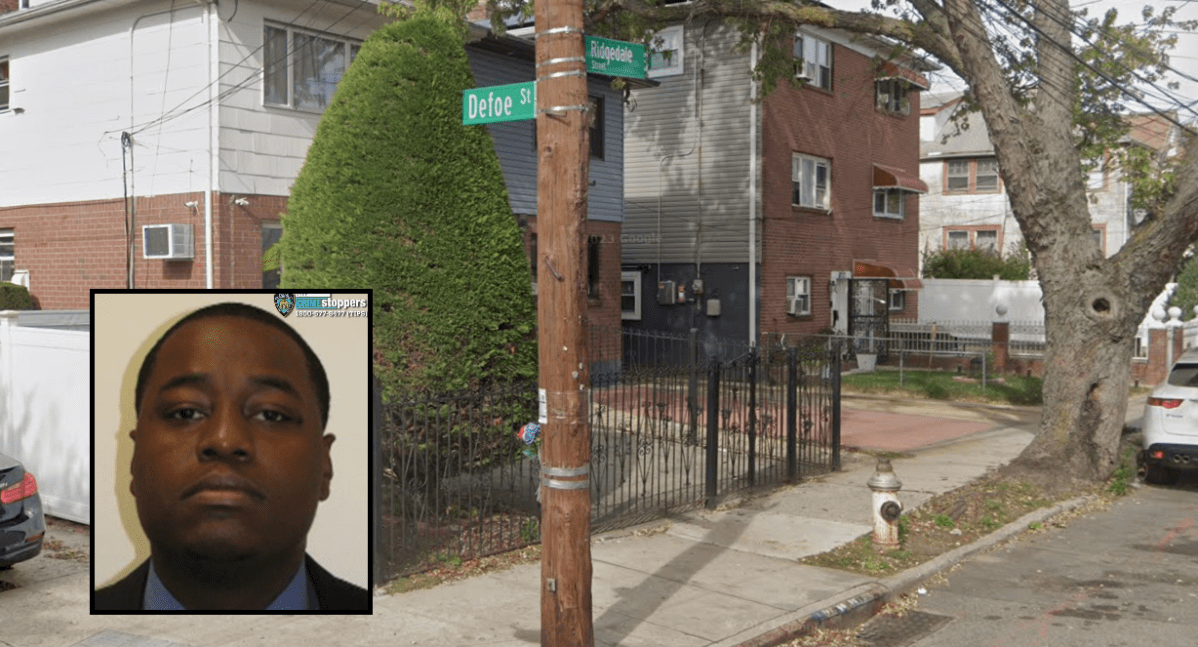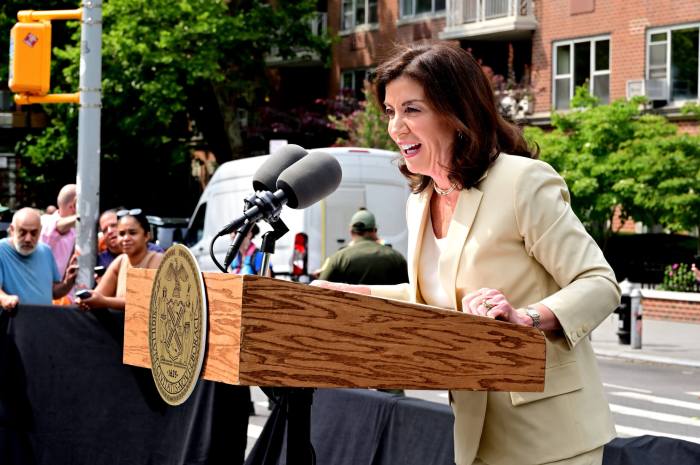Tenant advocacy groups and pro-landlord organizations found themselves united in their mutual disdain for a reported state budget housing deal.
Advocates reacted to several published reports on Friday highlighting the details of a likely housing deal between Gov. Kathy Hochul, state Senate Majority Leader Andrea Stewart-Cousins and Assembly Speaker Carl Heastie. Reaching an agreement that both boosts housing production and provides tenants with more safeguards has been perhaps the biggest stumbling block to passing a state spending plan, which is now two weeks past its April 1 deadline this year.
Lawmakers were back in Albany Monday to further negotiate a final deal on the Fiscal Year 2025 budget.
While tenant advocates voiced outrage that the reported housing deal caters too much to real estate interests and doesn’t do nearly enough to protect renters, pro-landlord groups argued that the deal is bad for them too, as it would weaken their ability to raise rents and recoup on investments they have made in their properties.
One big sticking point for tenants groups, and a growing number of Albany lawmakers, is a modified version of long-sought “Good Cause Eviction” legislation reported to be included in the plan. They charge the proposed carve-outs significantly weaken the original bill, which caps rent increases and limits landlords’ ability to evict tenants.
Cea Weaver, coalition leader of the advocacy group Housing Justice for All, called the potential deal a “slap in the face” for New York tenants.
“New York is in a historic housing crisis. Tenants in every part of the state are struggling to keep a roof over their heads as rents and evictions skyrocket,” Weaver said in a Friday statement. “This sham of a housing deal will not address the housing crisis – but it will ensure that the real estate industry keeps getting richer off the backs of hardworking tenants.”
Weaver believes the proposed modifications to Good Cause would make it the “weakest” version of the legislation across the country.
The reported alterations to the bill include the protections only applying to municipalities outside New York City that opt-in to them, whereas the original legislation would have been statewide.
Additionally, the modified Good Cause bill would exempt from the program newly constructed residential buildings, owner-occupied buildings with eight units or less, landlords with a portfolio of 10 units or less and apartments priced at 200% of federal fair market rent, according to reports. None of those carve-outs were included in the original bill.
On top of that, reports indicate the deal would cap rent increases for non-rent regulated units at 10% or 5% plus the consumer price index; the original legislation set caps at 3% or 1.5 times the consumer price index.
Housing Justice for All pointed to even more changes to the law it says are under dicsussion, according to a Monday report by City & State New York. Those would add reasons for which landlords could evict tenants, on top of them violating the terms of their lease, which was included in the original bill.
The new reasons include the so-called “good faith” removal of a unit from the rental market and “good faith” substantial apartment rehabilitation, which the advocacy group argues landlords can use to bypass the law altogether.
Advocates are also decrying some rollbacks to the 2019 Housing Stability and Tenant Protection Act which would increase the amount that landlords can raise rents to recoup what they spend on apartment renovations in stabilized units.
“The proposed Good Cause would be the weakest in the country, denying millions of renters across the state basic protections from unfair rent hikes and evictions,” Weaver said. “And the proposed changes to rent stabilization would put a target on the backs of rent stabilized tenants across the state, incentivizing landlords to harass them out of their homes to increase their profits.”
Weaver urged state lawmakers to reject the potential deal.
As for the unhappiness among pro-landlord groups, Homeowners for an Affordable New York, which fiercely opposes Good Cause and argues it would be disastrous for the state’s rental market, said the deal “does nothing to alleviate the housing crisis anywhere in the state.”
“The housing policy disaster being reported out of Albany has done the seemingly impossible: united everyone in outrage,” the group’s spokesperson said in a Friday statement. “It is a breathtaking failure to address vital and pressing issues, not a situation where ‘every stakeholder is unhappy, so it must be a good compromise.’”
But Mayor Adams seems pleased
While the deal has gotten pushback from both tenants and landlords, one party did voice strong support for it on Friday: Mayor Eric Adams’ administration. The prospective deal reportedly includes many of the central items Adams has been pleading with Albany lawmakers to pass in recent years.
One of those measures is a replacement to the 421-a affordable housing tax break, dubbed 485-x. In order to qualify for the new tax break, developers would have to set aside 20% of units in new construction for tenants at or below 80% of the Area Median Income (AMI), according to reports.
Another item Adams has been pushing for, that is reported to be in the deal, is an end to the city’s 12 “Floor Area Ratio” (FAR) cap, which limits the size of residential buildings in the city to 12 times the size of its lot. Lifting the cap would make it easier to convert vacant office buildings into housing, something City Hall has listed as one of its top housing priorities.
Deputy Mayor Maria Torres-Springer, who is in charge of housing policy in the Adams administration, said in a Friday statement that New Yorkers can “breathe a sigh of relief” if the deal holds.
“The package that seems to be coming together is what the Adams administration has been advocating for and working tirelessly with Albany colleagues to achieve for months,” Torres-Springer said. “Pairing new tools to build housing with tenant protections will help our city build its way out of the housing crisis and keep New Yorkers in their homes.”
Read More: Harlem Afterschool Teacher Indicted in Heinous Sexual Abuse
































